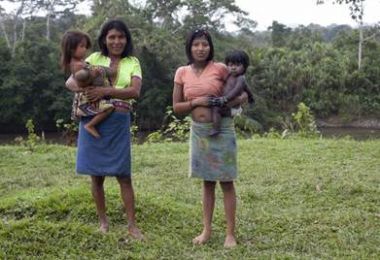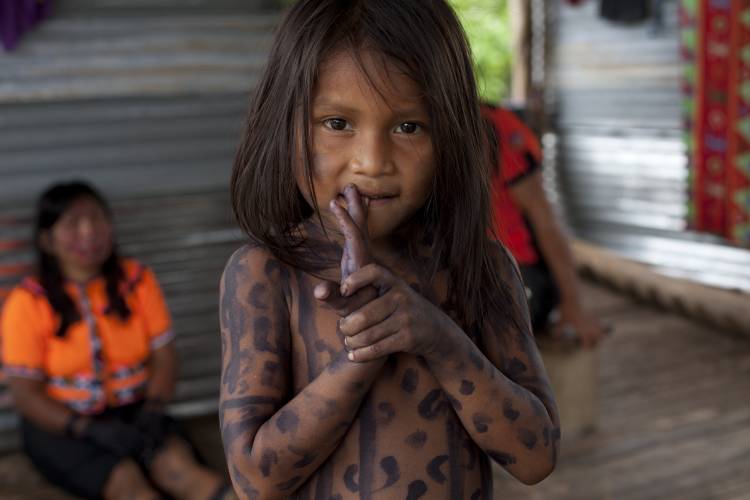Spraying of indigenous people's land in Colombia causing sickness

Christian Aid has criticised the aerial-spraying of coca crops in northwest Colombia, saying it is putting the future of indigenous children at risk.
The Embera community reports that their water and crops have been contaminated and that the spraying is causing locals, including children, to become sick.
"This is a clear violation of their rights," said Thomas Mortensen, Christian Aid Country Manager of Christian Aid in Colombia.
The Embera community is demanding that the Colombian government respect their rights, land and their lives.
Mr Mortensen backed their call, saying that the Colombian government must respect indigenous people's rights and abide by the Colombian Constitution and ILO Convention 169 on Indigenous and Tribal Peoples, which both grant the right of prior consultation to indigenous people for activities on their land.
"If these agreements were upheld, the Colombian authorities could have worked with the indigenous community to manually eradicate the coca in the area and protect the Embera community from outsiders," he said.
The call falls on the United Nations' International Day of the World's Indigenous People. The theme for this year is 'Honouring treaties, agreements and other constructive arrangements'.
The Embera community approached the government last year for help to eradicate the coca crops but they explicitly rejected aerial-spraying.

Last month, the Colombian Air force began a process of spraying of illicit crops in Alto Guayabal, in Chocó region, north-western Colombia. The aircraft sprayed herbicide indiscriminately and it is alleged that the spraying covered not only illicit crops but food crops as well.
The Embera community has written to Colombian authorities denouncing the aerial-spraying and requesting respect for their rights as well as health support and clean water supplies.
Colombia is the only country in the world that permits aerial-spraying of drug producing crops but Christian Aid says this method is opposed by human rights and environmental groups because of its impact on people as well as local soil and water systems.
Christian Aid says there are 34 indigenous people groups in Colombia at risk of physical or cultural extinction, including the Embera people. Around a hundred indigenous groups in total are struggling to hold onto territory that is legally theirs because of the disregard shown by mining companies and armed groups.











